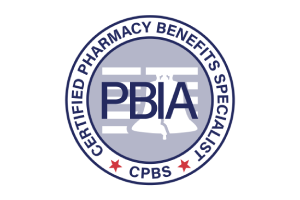Annual Report on Specialty Spend and Trends and other notes from around the interweb:
- Annual Report on Specialty Spend and Trends (2023). The seventh annual State of Specialty Spend and Trend Report uses integrated pharmacy and medical claims data to provide a holistic view of specialty drug spend and trends. First published in 2017, this report is the sole comprehensive analysis of specialty drug spending, powered by the industry’s leading integrated dataset through Artemetrx. Key takeaways include the percentage of members taking at least one specialty drug continues to rise (4%), while the average number of claims per person remains steady at 5 claims per year. Another key takeaway, specialty spend continues to shift from the medical benefit to the pharmacy benefit, the latter of which now accounts for 56.3% of spend.
- How Self-Funded Employers Can Use Point Solutions to Manage Pharmaceutical Costs. Point solutions are specialized tools or platforms designed to address specific issues or challenges faced by organizations. In the context of pharmaceutical cost management, point solutions provide targeted assistance in identifying cost-saving opportunities, improving medication adherence, streamlining prescription processes, and enhancing overall health outcomes. Before delving into the benefits of point solutions, it is essential for self-funded employers to gain a comprehensive understanding of their pharmaceutical costs. This entails assessing the utilization patterns, identifying high-cost drugs, analyzing prescription data, and exploring trends in pharmacy benefit claims. By closely examining these factors, employers can identify areas of potential savings and develop tailored strategies to optimize their pharmacy benefit plans.
- Playbook for Employers – Addressing PBM Misalignment. The guide, released by the National Alliance of Healthcare Purchaser Coalitions, identifies several key strategic recommendations that employers can adopt when looking to better navigate their relationship with PBMs. For one, the playbook recommends that employers find advisers that are genuinely putting in the work for them. Advisers should be independent and transparent, according to the guidebook, and contracts should be designed to ensure that PBMs act in the employer’s best interest. “As we uncover these increasingly apparent anomalies, I think we’ve got to challenge ourselves to do better and most importantly require that our advisers, our middlemen and our intermediaries do better on our behalf,” Mike Thompson, CEO of the alliance, told Fierce Healthcare.
- STAT News investigation takes deep dive into PBM broker conflicts of interest. Employers across the country — from big names like Boeing and UPS to local school systems — pay consulting firms to handle a straightforward task with their prescription drug coverage: Get the best deals possible, and make sure the industry’s middlemen, known as pharmacy benefit managers, aren’t ripping them off with unfair contracts. But a largely hidden flow of money between major consulting conglomerates and PBMs compromises that relationship, a STAT investigation shows. Some consulting firms often are getting paid more — a lot more — by the PBMs and health insurance carriers that they are supposed to scrutinize than by companies they are supposed to be looking out for.
